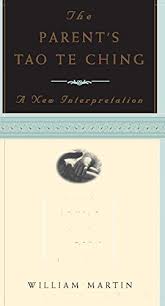The post "Books in Lockdown" was about books that the current dystopian times reminded me of. Subsequently, I wrote another books related post titled "Haruki Murakami & Other Escapes", which was about few books that I recommended as an escape from these times. But today, I am going to talk about two books, which I actually read few months back, in the period when Covid19 had just started spreading across the world.
The Infinite Game by Simon Sinek
This one comes highly recommended. There are certain books, where you can't dispute the logic or intent, but as a reader, you constantly keep struggling with the solidity and the execution of the concepts being talked about. This book talks about how corporate leaders are conditioned to think short-term and finite, while the game being played is infinite. He provides a framework which is anchored on having a Just Cause or what I would call the purpose that should be your north star. A cause which helps build trusting teams. The author, at one point makes an interesting distinction between sports and corporate world. (While, we have been always given analogies of sports at corporate meets.) He clearly states that we should look out for worthy rivals rather than competition, like in finite sports. He tells with examples of brands like Apple, how existential flexibility, can help a brand pivot from its core product, (in this case from computers to phones, music etc.) if Just Cause is not centered around a product or a number, and courage to lead is in ample supply.
Some cases shared are interesting. I also liked the chapter on Ethical Fading, because it seemed more tangible than others. It talks about the concept where you might follow law to the letter, but not necessarily in spirit or as per morality. But its the analogy of the Vietnam War and who really won it, that stayed back with me.
I always find this genre of books difficult to wrap my head around. For example the Kodak and the Apple stories have been cited in so many books, using so many frameworks, that you kind of know the beats already and you also get it that in real world things don't operate that simplistically. Things work out or fail because of several variables at play. But among this genre of books, this one is far more coherent, and there is clarity of intent and writing is lucid. There are certain chapters that help you reflect on the way you look at success - both personal and professional and the way you look at team building. Also the discussion between 'legal' and 'ethical' is very interestingly put across. And thus the book is enriching in that sense.
A line from the book which I really liked - "If the true purpose of business was only to make money, there would be no need for so many companies to pretend to be cause or purpose driven"
Siddhartha by Herman Hesse
It is a book about the spiritual journey of a man called Siddhartha during the time of Buddha. I have never read such a book before. It reads like a novel, but it is not. It is easy to read but difficult to understand and absorb. It is a book which one will have to read multiple times over one's lifetime, because takeaways from it depends on your mental state and your interpretation, at the given time of your life. As the book was originally written, in German, in simple lyrical style, I also felt that rhythm in the English translation is missing, which at times may be jarring. But one has to overcome that to really take something away from this book.
The key themes of the book which I liked were, the totality of experience one must immerse in and the difference between 'seeking' and 'finding' . Also the fact that enlightenment can't be taught but it has to come from within is brought out beautifully through Siddhartha's journey.
Two quotes from the book which talk about the themes I liked, are reproduced below for your delight.
“Wisdom cannot be imparted. Wisdom that a wise man attempts to impart always sounds like foolishness to someone else ... Knowledge can be communicated, but not wisdom. One can find it, live it, do wonders through it, but one cannot communicate and teach it.”
“What could I say to you that would be of value, except that perhaps you seek too much, that as a result of your seeking you cannot find.”
---
What was the last book you liked and why? Do tell me in the comments section.
---
My theme for this year's #AtoZchallenge is Lock-down Blues. I intend to write and talk about how I deal with it, what it inspires me to read or watch or any aspect of it which fascinates me. You can read the theme reveal post here.
Previous Challenges : Letter T































